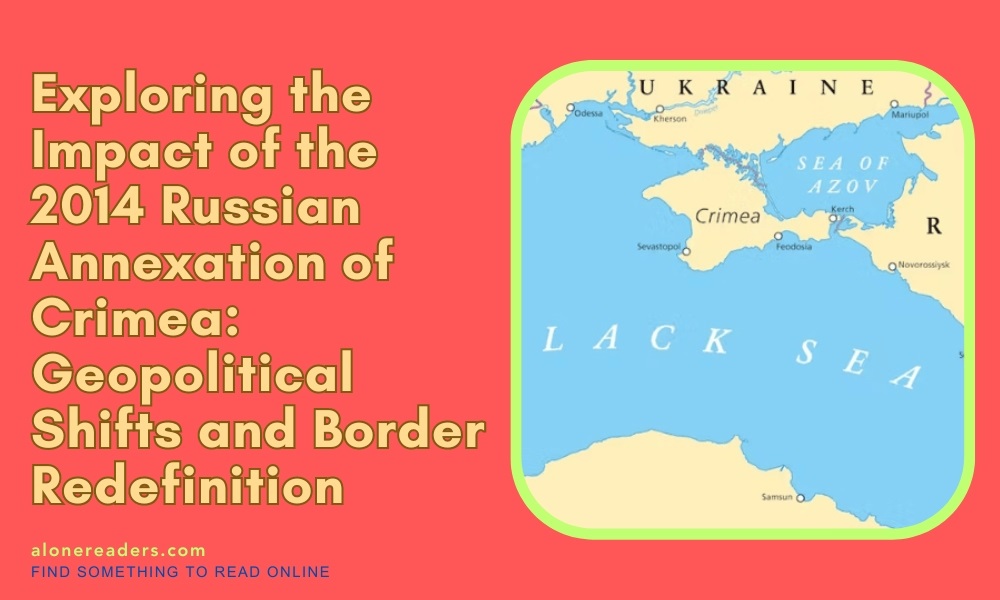
The annexation of Crimea by the Russian Federation in 2014 is one of the most significant geopolitical events of the early 21st century. It marked a major shift in international relations and posed new challenges to the post-Cold War order in Europe. The event not only redrew borders but also sparked a complex conflict between Russia and Ukraine, which continues to resonate on the global stage.
The story of Crimea’s annexation begins with the unrest in Ukraine in 2013 and early 2014, known as the Euromaidan protests. These protests were initially focused on Ukraine's decision to suspend an association agreement with the European Union in favor of closer economic relations with Russia. The situation escalated, leading to the ousting of Ukrainian President Viktor Yanukovych in February 2014. This political upheaval created a vacuum and a sense of uncertainty that set the stage for the ensuing events in Crimea.
In the context of this political instability, Russia moved to annex Crimea, a region that had a majority ethnic Russian population and housed the Russian Black Sea Fleet in Sevastopol. In late February 2014, unmarked troops, later confirmed to be Russian soldiers, seized key sites across Crimea, including government buildings and military bases. This military intervention was followed by a controversial referendum held on March 16, 2014, in which, according to Russian reports, over 95% of voters supported joining Russia. The referendum was organized in haste under heavily militarized conditions and was widely criticized by the international community as illegitimate.
Following the referendum, Russia quickly moved to formally annex Crimea, a process completed on March 18, 2014, when Russian President Vladimir Putin signed the treaty of accession. This move was met with immediate condemnation from the international community, including the United States and the European Union, which argued that the annexation was a blatant violation of international law, specifically the United Nations Charter, and the 1994 Budapest Memorandum on Security Assurances, which had guaranteed Ukraine's territorial integrity in exchange for giving up its nuclear arsenal.
The annexation had profound consequences for the geopolitical landscape. NATO and the European Union were placed in a difficult position, striving to balance the need to support Ukraine and deter further Russian aggression without escalating the conflict into a broader war. Economic sanctions were imposed on Russia by the US, EU, and other countries, aiming to punish it for violating international law and to deter similar actions in the future. These sanctions targeted individuals, businesses, and sectors of the Russian economy, particularly those associated with military capabilities and energy.
In Ukraine, the annexation deepened the divide between the eastern regions, where pro-Russian sentiment was stronger, and the western parts of the country, which leaned more toward European integration. This division soon led to the War in Donbas, involving Ukrainian government forces and separatist pro-Russian groups in eastern Ukraine. The conflict has resulted in thousands of deaths and has displaced a large number of people.
Internally, Russia faced significant economic challenges due to sanctions but also garnered nationalistic support for the annexation. In Crimea itself, the Russian takeover has had mixed outcomes. While Russia has invested heavily in infrastructure and military capabilities on the peninsula, the region has also faced international isolation, reduced tourist revenue, and ongoing human rights criticisms, especially concerning the treatment of the Crimean Tatars and other minorities.
The long-term implications of the Crimea annexation are still unfolding. It has prompted NATO to increase its military presence in Eastern Europe, and it continues to affect the dynamics of Russian relations with Western countries. The situation in Ukraine remains volatile and complex, with the Minsk agreements attempting to provide a framework for resolution but with limited success.
In conclusion, the annexation of Crimea by Russia in 2014 is a pivotal event that has reshaped international relations and redrawn borders in Eastern Europe. It remains a critical point of contention and a stark reminder of the ongoing challenges in achieving stability and security in the post-Cold War world. As the situation continues to develop, the international community remains watchful, understanding that the outcomes of this conflict will have far-reaching consequences for global geopolitics.